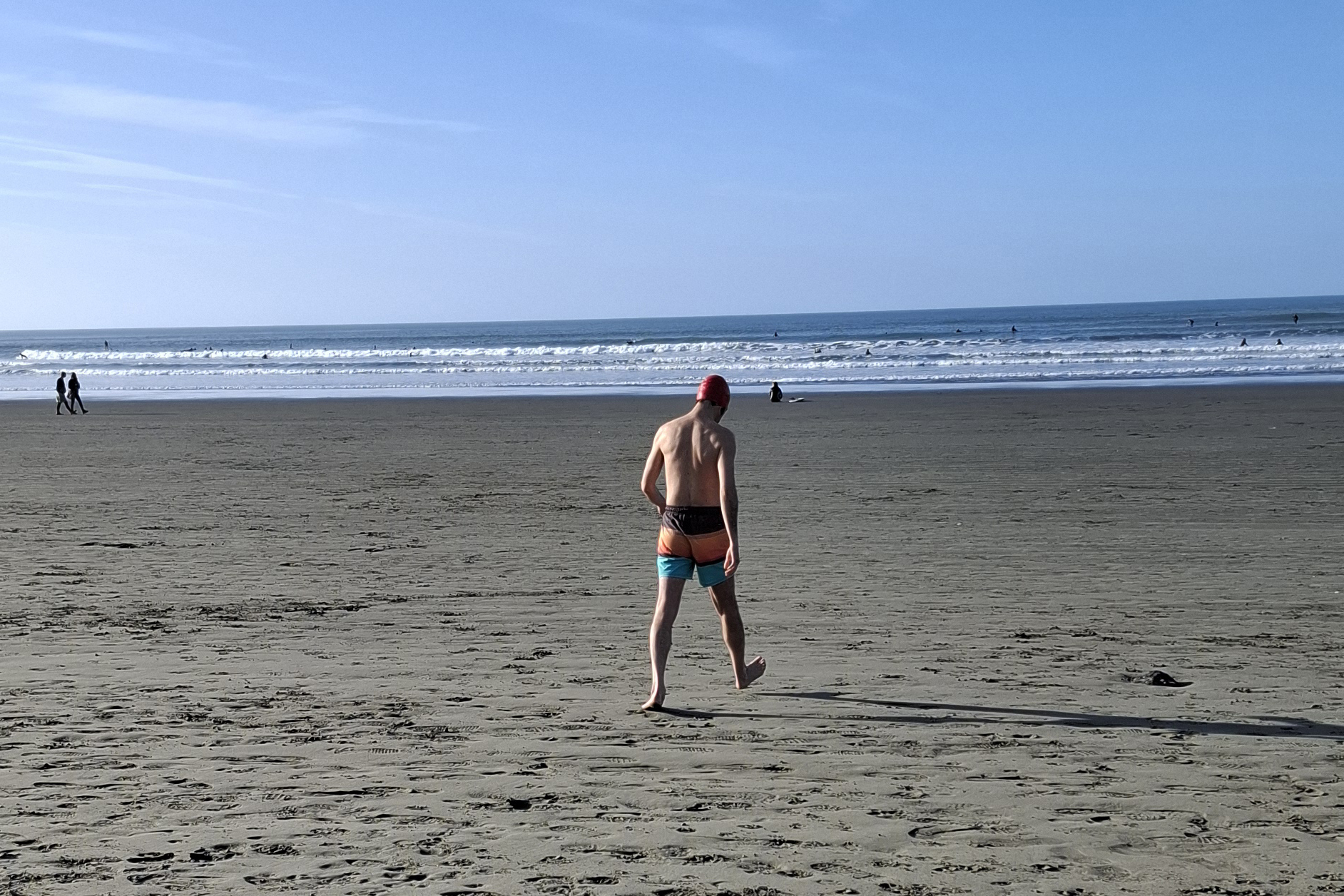Top Stories
Winter Sea Bathing: Exploring the Health Benefits and Risks

The health benefits of winter sea bathing have gained attention recently, particularly through the lens of poetry. In his collection *Sick Power Trip*, poet Erik Kennedy reflects on the experience of cold water swimming and its effects on mental and physical health. While some research suggests that cold water swimming may boost the immune system, the scientific community remains divided on whether this practice genuinely enhances well-being or if it simply attracts individuals who are already health-conscious.
Kennedy’s poem captures the dichotomy between the exhilarating experience of immersing oneself in icy waters and the discomfort that accompanies it. “The doctors can’t make up their minds about whether the sea makes people healthy or healthy people choose the sea,” he writes, highlighting the contradictory views held by experts. The emotional and physiological responses to cold exposure can be as varied as the individuals who partake in the activity.
Understanding Cold Water Swimming
Research into cold water swimming has been limited, leaving many questions unanswered. Proponents argue that the practice can help alleviate symptoms of depression, particularly during the winter months when Seasonal Affective Disorder (SAD) is prevalent. Kennedy’s poem reflects this sentiment, stating, “On the one hand: yes. On the other: brr.” This playful take on the conflicting advice surrounding cold exposure underscores the complexity of how our bodies react to extreme temperatures.
Kennedy also muses on the sensation of cold shock, suggesting that the experience may feel like “frozen diamonds are growing in your skin.” This imagery evokes a vivid sense of the physical reactions one endures when plunging into cold water, prompting readers to consider the broader implications of such experiences.
The poet’s perspective emphasizes the need for caution. He mentions enjoying articles that address how to prevent hypothermia, indicating a practical awareness of the risks associated with winter swimming. As he notes, “All I know is the sea is trying to kill us and the process is gentler if you let it, a little.”
Reflections on Health and Well-Being
Kennedy’s *Sick Power Trip* also delves into personal themes, including his struggle with long Covid and broader societal issues like the living wage. The collection provides a multifaceted view of the poet’s life, with one poem beginning, “When I was very young, I lived with a professional couple.” This autobiographical element adds depth to his exploration of health, both physical and emotional.
The poem encourages readers to reflect on their own experiences with nature and well-being. The winter sea offers not just a physical challenge but also a space for introspection. As Kennedy suggests, there is little to do but “mumble and look at the clouds and survive.” This simplicity invites people to embrace the moment, regardless of the discomfort that may come with it.
Kennedy’s collection is available through Te Herenga Waka University Press for $30, offering readers a chance to engage with his thought-provoking reflections on health and resilience. A short story from the collection was featured in ReadingRoom on March 16, 2024, further showcasing Kennedy’s literary talents and insights.
As the conversation around winter sea bathing continues, it remains essential to balance the allure of nature’s challenges with an understanding of our bodies’ limits. The experience may not be for everyone, but for those who dare to embrace the cold, it could serve as a reminder of the complex interplay between mind, body, and environment.
-

 Sports2 months ago
Sports2 months agoNetball New Zealand Stands Down Dame Noeline Taurua for Series
-

 Entertainment2 months ago
Entertainment2 months agoTributes Pour In for Lachlan Rofe, Reality Star, Dead at 47
-

 Entertainment4 weeks ago
Entertainment4 weeks agoNew ‘Maverick’ Chaser Joins Beat the Chasers Season Finale
-

 Sports6 days ago
Sports6 days agoEli Katoa Rushed to Hospital After Sideline Incident During Match
-

 Sports2 months ago
Sports2 months agoSilver Ferns Legend Laura Langman Criticizes Team’s Attitude
-

 Politics1 month ago
Politics1 month agoNetball NZ Calls for Respect Amid Dame Taurua’s Standoff
-

 Entertainment2 months ago
Entertainment2 months agoKhloe Kardashian Embraces Innovative Stem Cell Therapy in Mexico
-

 Sports4 days ago
Sports4 days agoJamie Melham Triumphs Over Husband Ben in Melbourne Cup Victory
-

 World3 months ago
World3 months agoPolice Arrest Multiple Individuals During Funeral for Zain Taikato-Fox
-

 Sports3 months ago
Sports3 months agoGaël Monfils Set to Defend ASB Classic Title in January 2026
-

 Entertainment1 month ago
Entertainment1 month agoTyson Fury’s Daughter Venezuela Gets Engaged at Birthday Bash
-

 Sports1 month ago
Sports1 month agoHeather McMahan Steps Down as Ryder Cup Host After Controversy









